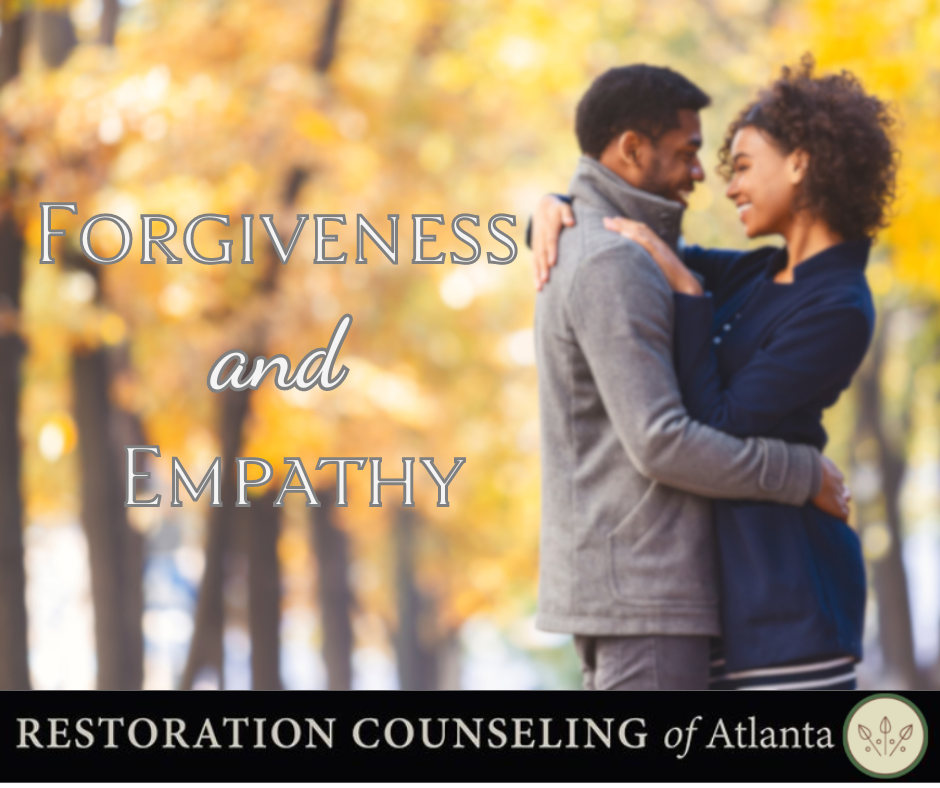My job brings me face-to-face with people deeply wounded by those who should have kept them safe. Whether a parent who should have loved more consistently, an unfaithful spouse, or a relationship with violated trust, it is understandable that my clients come to therapy with a great deal of hurt which has often turned to bitterness or even contempt. Frequently, my clients bring a set of beliefs that encourages forgiveness for those who have wronged them. Most commonly, this is motivated by Christian faith. While I certainly want to encourage and bolster this faith, I hope this article can clarify some potentially erroneous assumptions about forgiveness and even free some to begin the process of forgiveness.
What is Forgiveness?
I believe that the core of forgiveness is freeing the other person to a place of empathy and dignity. Empathy? In light of what they’ve done? How? It begins with a belief that behavior makes sense in context. I’ve worked with hundreds of people at this point in my career, and never once, after hearing their story, have I desired to judge them. Every time I dig in, I find the wounds, abuses, and neglect that shape their story, which creates a tremendous amount of empathy.
For an extreme example, I work with women coming out of prostitution in the streets of Atlanta. Hearing their stories and about the men that exploit them is tragic and horrifying. Yet, one thought I frequently return to is what those men must have experienced as boys that would lead them to such a lifestyle. What occurred that would silence any voice of compassion in their minds? Jesus’ exhortation in John 10:10, that “the enemy comes to kill, to steal, and to destroy, but I have come that you may have life and that life abundant,” is the core narrative of the gospel. I believe that if we are to experience this abundant life, forgiveness is a critical part of the process.
Why Forgive?
Jesus’ encouragement to forgive those that sin against you actively fights the shame that most live with on a daily basis and brings healing. I hope I don’t need to clarify, I’m not saying that empathy excuses or justifies sin, but that you can create healthy boundaries, guard your heart, AND extend grace to someone who has wronged you.
I’ve often had clients express frustration and distress at the idea of trusting their spouse again. While that may be appropriate at some point in the future, that isn’t where I would start, nor is it the same thing as forgiveness. Trust is about opening one’s heart to someone again and letting them into those vulnerable places. Forgiveness is about humanizing the individual and extending dignity to a broken and hurting soul. Trust and reconciliation are not always appropriate, but forgiveness is.
Finally, I want to clarify that I am not insensitive to how difficult it can be to forgive. As I explained earlier, I believe that if I had experienced the same things, I would find it just as difficult to forgive. However, forgiveness is part of the abundant life that Christ died to bring us into. Extending empathy to those who are most broken exemplifies the love and compassion which Christ has shown to us, dignifies the wrongdoer, and frees the wronged.
 Written by: Kyle Sussenbach, MA, LAMFT
Written by: Kyle Sussenbach, MA, LAMFT
Roswell and Buckhead locations
kyle@restorationcounselingatl.com, ext. 117
Kyle is trained to work with individuals, couples, and families experiencing various issues, including depression, anxiety, addictions, anger, suicidality, and relational distress. He also provides marriage and premarital counseling and has completed EMDR (Eye Movement Desensitization and Reprocessing) training.

